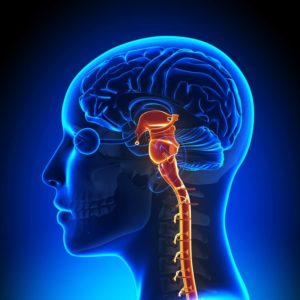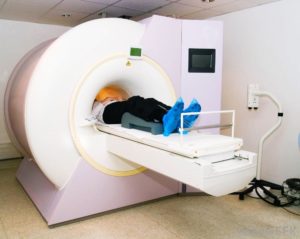[vc_row][vc_column][vc_column_text]If you’re experiencing chronic pain in the back of your head, accompanied with sharp and intense tweaks, you’re probably suffering from occipital neuralgia. Unlike most common headaches and migraines, this chronic disorder causes frequent pain and not only affects your comfort, but also impairs your overall health by affecting your life routine.
Of course, when your head aches, you probably want to put off all your work away as you probably don’t feel like doing much of anything at all; instead, you look for the remedies or medications to cure the condition right away. There is no doubt that headaches are very distressing and leave you with great discomfort.
But when it comes to occipital neuralgia, the condition can wreak havoc on your health as well as on your lifestyle! Saying that, let’s explore more about the occipital neuralgia.
Top Related Article: Headache Behind Eyes
What is Occipital Neuralgia (ON)?


This intense sharp pain can last from a few seconds to minutes, depending on the severity of your condition. According to a medical study, it has been revealed that every three out of 100,000 people suffer from occipital neuralgia every year.
The pain feels like throbbing, piercing, or an electric shock and affects the upper neck, the area behind the ears, back of the head, and usually either side of your head. With that being said, you can imagine how stressful and intense the pain can be.
When it comes to scientific ideas about occipital neuralgia, the latter term refers to sporadic pain distributed in nerves, particularly in occipital nerves. These nerves originate from the roots of upper cervical nerve, are routed to the neck muscles, and end up near your skull.
When you’re affected by occipital neuralgia, these nerves experience painful sensations on the back and top of your head and behind the ears.
A Case of Occipital Neuralgia
Imagine a dull pain striking your head and traveling to the area above your left or right eye. Not only this, imagine such pain affecting your head more than thrice a day, every day. In fact, it can last most days of the year. This stressful pain not only discomforts you, but can take over your life.
According to a medical case involving occipital neuralgia, the condition starts with a mild throbbing sensation that increases with ever-tightening pressure. There are some days when patients can’t get out of their bed and are more likely to feel a painful sensation like someone is pounding a hammer above their eye.
The pain never goes away until you’re off to bed. In some cases, if any other virus, disorder, disease, or a medical condition affects the patient who is already suffering from occipital neuralgia, the condition can get worse, making the patient endure more painful headaches.
Along with the regular headaches that feel like an electric shock in the upper neck, back of the head and behind the ears, patients with occipital neuralgia may become sensitive to the exposure to light. This can be accompanied by regular migraine, making the condition even worse.
As the pain and the condition vary over time, you may experience frequent mood swings and become more impatient. In most cases, patients become hopeless and give up while thinking that they have only a few days left to live.
As this stressful condition adversely affects activities in your life, you will be more likely to stay alone and recall the days when you used to do the things you loved. These changes altogether make you feel lost, and scared to death, and you probably find such days some of the darkest moments of your life.
While reading this case, you may feel that occipital neuralgia isn’t a disorder that can be treated or cured; rather, this condition takes away the life of a sufferer.
However, this is not true; occipital neuralgia is not a life-threatening disease and the condition, no matter how painful, can be cured.
Top Related Article: Pain In Back Of Head
The Signs and Symptoms of Occipital Neuralgia
The symptoms of occipital neuralgia can be mild or severe, and vary from person to person. This is because Occipital Neuralgia pain can be very intense, and there is also the chance of occipital nerve pain symptoms. At first, people often confuse this chronic pain with a migraine or occasional headaches. However, in order to determine whether you’re suffering from regular headaches, migraine, or occipital neuralgia, it’s crucial to know all the symptoms of occipital neuralgia.
Occipital Neuralgia Symptoms


The ache is episodic, shocking, and burning. They feel an intense and sharp pain, as if someone is stabbing their head. In addition, this sharp throbbing pain can be accompanied by spasms.
Patients feel a painful sensation along the occipital nerve, which is at the back of your head, the upper part of your neck, and in either side of your head; don’t forget the pain can be also bilateral while affecting your eyes too. Depending on their condition and intensity, all people experience the pain triggered by occipital neuralgia differently.
Top Related Article: Migraine VS Headache
Other Symptoms
Besides the piercing intervals of pain, patients are likely to develop some other symptoms. Note that every person is different; so, it’s not necessary that all patients experience every symptom equally.
Tender Scalp
Patients with occipital neuralgia may feel pain, tingling, numbness, irritation, itching, inflammation, and sensitivity of scalp. In occipital neuralgia, your nerves are affected and they affect your scalp too.
Dizziness
If you feel lightheaded, unbalanced, or woozy while standing and even when you’re resting, or if you sense you are just about to faint, it means that you’re affected by dizziness. It’s not a disease; rather, it’s a symptom that is a result of several health conditions.
In the case of occipital neuralgia, you will feel your eyes and ears are affected, making you feel like you’ll faint. You may also feel like you are floating or swimming during sleep.
Vertigo
Vertigo is a sensation of feeling imbalanced; if you experience dizziness and feel like you are about to faint, you may also sense that the things around you are whirling or spinning, specifically when you’re in a steady position and not moving.
This symptom occurs when your vestibular system is affected by any disorder, like occipital neuralgia. Here, it’s important to mention that the vestibular system is the sensory system responsible for maintaining and ensuring movement and equilibrium in your body.
Nasal Congestion
If you’re going through a chronic headache accompanied by nasal congestion (a stuffy nose), consult your doctor right away because there is a risk that you may have occipital neuralgia.
Nausea
Nausea is a symptom in which you feel stomach discomfort including abdominal pain, cramps, bloating, inflammation, or improper digestion accompanied with a sense of vomiting. When you experience sharp pains along with dizziness and nausea, consult your doctor because you may develop occipital neuralgia.
Tinnitus
Also known as ‘ringing in the ears’, tinnitus is a symptom that causes a person to hear low and frequent noises. These may include the sound of a whistle, a crackling noise, or even a roar.
However, tinnitus does not cause loss of hearing. Furthermore, the noise can occur occasionally, for days, or it can be constant. Again, it’s not necessary that every person with occipital neuralgia will surely hear these sounds.
Stiff Neck
When your neck feels tense and tight and you’re not able to move it, it’s probably because a part of your cervical muscles is either misaligned or your cervical nerves are affected because of a medical condition. So, if you feel stiffness in your neck with an episodic pain, this is probably because you’ve developed occipital neuralgia.
Dental Pain
Like the other symptoms, dental pain occurs when it is affected by any medical condition or disorder your body is going through. If you feel an intense, sharp, and piercing toothache along with a throbbing pain in certain parts of your head, you are probably suffering from occipital neuralgia.
Besides these symptoms, patients may experience other signs as the condition varies from person to person. The pain triggered by occipital neuralgia is episodic and can last from seconds to minutes and hours. However, the tenderness in the upper cervical nerves and other symptoms can last for a longer period.
What Causes Occipital Neuralgia (ON)?


Top Related Article: Headache Cure
Injuries
A physical injury to the back of the head is one of the most common causes of occipital neuralgia. This can occur when you fall or collapse, are involved in a car accident, experience a sports injury, or any other trauma. Specifically, injuries that cause inflammation and a pinching sensation in your occipital nerves are the main causes of occipital neuralgia.
Tensed Nerves
If you sit for long hours with your head in a steady position, especially in a forward or downward pose, you may end up with trauma in your neck. Along with that, you may develop nerve compression at the base of your head that can eventually result in occipital neuralgia.
Arthritis
With age, your bones are likely to become fragile and brittle, which can result in arthritis. Some specific types of the condition, including rheumatoid arthritis and osteoarthritis, cause prolonged inflammation, and affect your cervical spine and make it stiff over time. This causes strain and pressure on the occipital nerves, which leads to occipital neuralgia.
Diabetes
According to medical researchers, diabetes causes neuropathy and inflammation of the nerves. More specifically, it can damage your nerves, resulting in the horrible condition, occipital neuralgia. Patients with diabetes are more likely to develop the condition than people who have arthritis.
Tumors
Tumors in the cervical spine can stress occipital nerves, cause inflammation, and result in occipital neuralgia. So, if you find swelling or a lump on your neck or throat, or if you have a persistent fever accompanied with a sore throat, talk to your doctor.
Now that you’re aware of all symptoms of occipital neuralgia, as well as causes, the next thing you need to know is how the condition is diagnosed.
How is Occipital Neuralgia Diagnosed?


Your doctor will document the symptoms and identify the severity of your condition. If your case isn’t a typical condition, your medical practitioner will do more testing.
Top Related Article: How To Stop A Headache Before It Gets Bad
Magnetic Resonance Imaging (MRI)
MRI produces 3D images of body structures performed through powerful magnets and computers; such diagnosis can directly show your spinal cord condition.
Computed Tomography Scan (CT Scan)
The test reads your x-rays that include anatomy of your spinal canal and the nearby structures and creates a diagnostic image.
Once you’re diagnosed with occipital neuralgia, it’s important to treat the condition before it gets worse.
How to Treat Occipital Neuralgia


You will be relieved to know that along with medical treatments, there are several effective methods to mitigate your pain or tackle your condition. With that being said, we are sharing some methods that can help alleviate and relieve your pain.
Follow a Tailored Diet
The very first thing that you should pay attention to is your diet. Your diet plays a significant role in maintaining your health. Conversely, making unhealthy food choices rather than adhering to a healthy diet can drastically affect your overall health while adversely affecting your immune strength.
Remember that your immune system is what protects you from harmful infections and hazardous health conditions. Therefore, it is more important to pay attention to your diet while dealing with occipital neuralgia, in order to keep the condition from getting worse.
It’s important to note here that recent medical studies have revealed that taking foods rich in B vitamins, particularly vitamin B12, can help relieve ON. Vitamin B12 plays a vital role in the development of the neurological system and regeneration of nerves; so, adding vitamin B12 rich foods in your diet is helpful in improving this distressful condition called occipital neuralgia.
Besides this, you must take plenty of fatty acids, such as fish oils and flax seed oils. It will help mitigate inflammation around the occipital nerves and, thus, relieve the sharp pain. In addition to that, you need to make sure to stay hydrated all day long.
Incorporate magnesium-rich food in your diet; it will aid in reducing headaches. Not to mention, avoid processed foods as much as possible and cut down on your sugar intake.
Practice Some Relaxation Methods
While dealing with occipital neuralgia, many people become stressed and depressed over time. Of course, the condition not only influences the health of a patient, but also impinges on their life routines. You can imagine how much anxiety and stress occipital neuralgia can create.
While a common headache is a great nuisance, occipital neuralgia, undoubtedly, can wreak havoc on your mind and mood. Your health condition accompanied by stress and depression can actually make ON even worse and increase pain levels in your head.
Therefore, it’s imperative to keep your mind relaxed and mitigate stress and depression with some relaxation methods. Although there are plenty of ways to reduce stress, practicing breathing exercises can notably alleviate the symptoms.
Medical professionals suggest that people who are dealing with occipital neuralgia must spend most of their time resting in a quiet room; they should stay away from noisy areas.
Furthermore, it’s a very good idea to limit the use of digital technologies, specifically smartphones. These tech devices emit harmful rays that can affect your eyes, which blurs and strains your vision.
Meditate to Alleviate Pain
You may have come across a number of research articles indicating meditation as a simple yet effective way to reduce pain, stress, anxiety, and depression. Not only occipital neuralgia, but meditation can also actually treat all kinds of chronic pain, no matter how intense the pain is.
A medical study reveals that participants who practiced meditation reported a significant decrease in pain within the initial 3 sessions of a 20-minute meditation session.
To begin meditation, set your sitting position in a quiet place, which is free from noise and other distractions. Close your eyes and start taking slow but deep breaths while maintaining all of your focus on each inhalation and exhalation. In most cases, most people fail to stay focused while meditating; their mind wanders repeatedly.
However, if you experience the same, keep trying to focus on your breath. Scientific evidence has shown that this mindfulness exercise can reduce stress, mitigate depression, and calm your mind.
Massage Therapy to Ease Pain
In some instances, despite practicing meditation and other relaxation methods, the pain may remain intense and sharp. However, there are several other ways to alleviate your pain. A massage can radically help mitigate tension in your nerves, which is often the main cause of pain.
Massaging the affected area can help hit certain pressure points or key blood flow areas in your nerves. This way, it will improve blood flow and reduce inflammation in your nerves. Not to mention, increased blood flow boosts oxygen levels in the bloodstream and can help heal damaged nerves.
Opt for Cranial Osteopathy
Most probably, you have gone through certain kind of mental stress at some stage in your life. Your brain and body may have dealt with the condition effectively at the time, but when you experience occipital neuralgia, it may trigger and accumulate those stressful strains.
If you neglect it, you’re more likely to experience intense pain in your joints and muscles as well, making the condition even worse.
In several cases, when the condition is left untreated, it usually leads to internal organ damage and affects bodily functions. Fortunately, an advanced massage therapy, named cranial osteopathy, can help alleviate your stress and the symptoms of occipital neuralgia impeccably.
Most healthcare experts recommend cranial osteopathy to their occipital neuralgia patients. As a manipulative technique to treat several health conditions, cranial osteopathy works well when it comes to treating occipital neuralgia.
Cranial osteopathy is a common type of osteopathic treatment that entails placing gentle pressure on the head, spine, and tailbone. The treatment creates sensations of episodic fluctuations of movement within your body. During the therapy, your tissues contract and expand gently; this encourages blood flow around your head and has a relaxing effect on your mind.
If you’re wondering whether the treatment is safe or not, you will be happy to know that this treatment is even suitable for infants and newborn babies.
Proper Sleep
Whenever you fall ill, you’re likely to spend more time being alone and quiet, without having anyone to disturb you. Furthermore, you don’t feel like doing anything other than resting. However, chronic pain, as the one caused by occipital neuralgia, can wreak havoc on your daily routine.
Among these, the very first thing that your condition will affect are your sleeping patterns. Remember that the less you sleep, the more pain you will experience.
Therefore, you must set a timely sleeping routine and try to sleep for at least 8 hours every night. We can’t emphasize enough how imperative it is for you to get enough sleep. Other than this, you must pay attention to your sleeping position. Neurological experts believe that people dealing with occipital neuralgia can alleviate the pain by adjusting their sleeping position.
Make sure to keep a pillow under your neck in a way that it supports your neck, but doesn’t keep your head higher than your neck. Another thing you need to keep in mind is to never place your head in a crooked position; this will cause your neck and head muscles to contract and stiffen, which is not good.
Behavioral Therapy
Believe it or not, your mood and behavior are responsible for increasing or decreasing the levels of pain you experience. You may have heard about behavioral modification therapy; it is a treatment that encompasses several health techniques while focusing on improving negative and undesirable behaviors that increase the intensity of pain associated with neuralgia.
Many healthcare professionals recommend behavioral modification therapy for people dealing with the stressful condition called ON.
There is no denying that the pain caused by ON is severe and intense. Conducting behavioral modification therapy not only tackles the pain, but can also have relaxing effects on you.
Use Topical Medications
Other than all the treatment procedures, you can also use topical medications to alleviate your pain. These medications come in the form of gels or creams and are applied directly to the skin. While they don’t treat the main cause of the pain, they do help create a relaxing sensation, making your mind calm. Some of the topical medications include Zostrix, Ketamine lotion, Xylocaine, EMLA cream, and Lidocaine patch.
Try Acupuncture
Many people with occipital neuralgia opt for acupuncture; an invasive procedure that is natural. The process helps relieve pain by poking small sharp needles into particular areas of your skin that correspond to the areas in which you’re experiencing pain. Remember that this procedure isn’t painful but helps alleviate your pain caused by the condition. Furthermore, if you opt for this procedure, make sure to consult an experienced practitioner.
Occipital Neuralgia Exercises
Occipital neuralgia is one of the most stressful conditions and causes a severe piercing pain in the back of your head. This chronic pain, as mentioned before, is episodic and causes a sharp, intense ache.
Besides the aforementioned Occipital Neuralgia treatment options, it’s crucial for patients to practice several exercises on a daily basis. Occipital Neuralgia treatment at home can be done through the following exercises. Although there are many exercises that can help alleviate your pain, we are discussing the most common ones here.
Practice Yoga
Besides the aforementioned exercises, you can practice a few yoga exercises. You probably know that yoga is believed to be a centuries-old exercise used to heal several medical conditions. With that being said, yoga can actually help you mitigate pain caused by occipital neuralgia.
Although there are several yoga practices for people dealing with occipital neuralgia, the most common ones are sub-occipital neck stretch, head rotation, and neck flexion and extension. To explore more about them, read on!
Neck Stretching
If you have ever done stretching exercises, you’re probably aware how relaxing it feels. In the case of occipital neuralgia, when your nerves are tense and mind is stressed, you really need to do some stretching exercises to get some relaxation. Neck stretches are one of the quickest and easiest Occipital Neuralgia exercises you can partake in.
For that, sit straight on a chair with your head and neck aligned with your spine. Next, place your thumb and middle finger on the chin, gently push your chin back, and keep your mouth closed. Move your head toward the back in a way that you feel your neck stretching, specifically, the back of your head, sides of your neck, and your skull base. Keep it stretched, hold on for about 5-10 seconds, and release slowly.
Head Rotation Exercise
After practicing some neck stretching exercises, move to another physical therapy, which is head rotation. Following the same sitting position as you did in the previous exercise, sit in a chair with your head and neck in line with your back. Now rotate your neck to the right, stretch your head as far as you can and hold it for 5 seconds. Then, look toward your right arm and stretch for a few seconds more.
Rotate your head back to its initial position i.e. to the center, and move your neck to the left and look over your left arm, stretching it as far as you can and hold for a few seconds. Repeat this stretch 7-10 times or until you feel relieved.
Neck Flexion and Extension Exercise
You will be surprised to know that neck extension can actually reduce tension in your back and neck, and help relax tight muscles at the base of your skull. To begin this exercise, position yourself in a chair with your head straight and neck aligned with your spine.
Keep your hands on your knees in a resting position, look forward at your eye level, and take some deep breaths.
Gently lean your head and neck to your back while moving your sight toward the ceiling, and hold on for a few seconds. Move your head back to the center, bend it forward slowly, and drop your chin to the chest. Bring your head back to the center and do 5-10 repetitions.
Follow Occipital Strengthening Exercises
Besides the aforementioned treatment options, you can also practice some exercises that can help strengthen your occipital nerves. For instance, the chin tuck is one of the most effective exercises to reduce neck pain and can be repeated several times throughout the day.
Repeating the exercise on a daily basis can improve your muscles’ strength and posture, and thus improve your health condition.
Sit in a chair with your head, neck, and spine aligned. Place your fingers on your chin and gently press your chin while exhaling slowly. This will stretch your occipital nerves at the base of your skull.
The Bottom Line
No matter how bad your condition is, remember that occipital neuralgia is not a life-threatening condition. Furthermore, it can be treated in several ways; most of which we have discussed above. If you continue having pain, or your pain worsens, be sure to talk to your doctor.[/vc_column_text][/vc_column][/vc_row]
